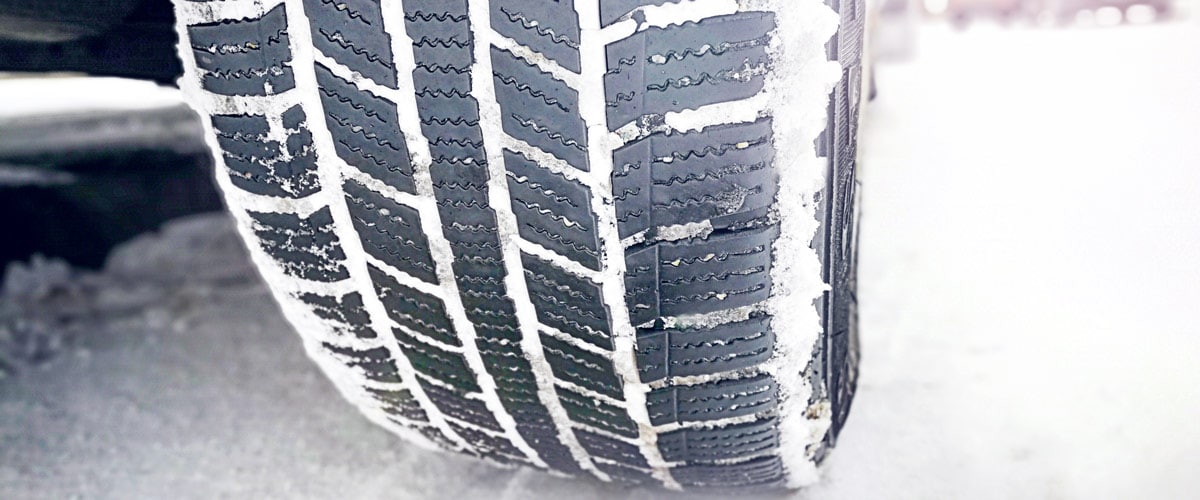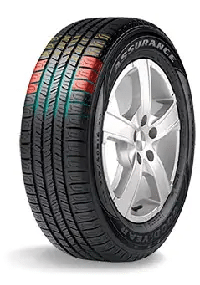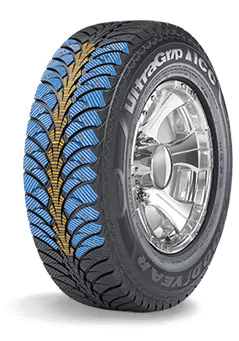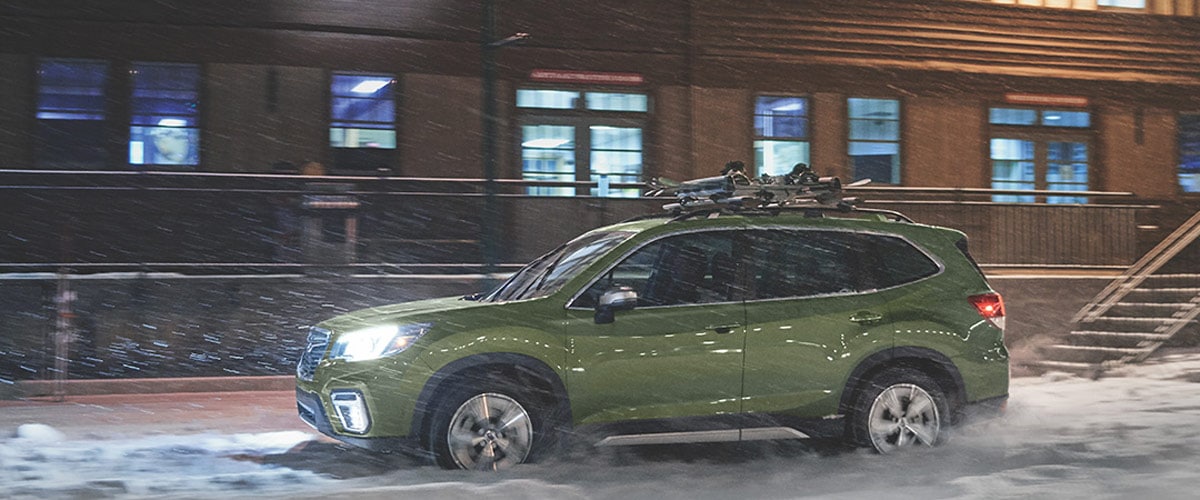Winter tires vs. All-Season Tires?
November 20, 2020
Navigating through the tire options might seem daunting, and the perennial question that often arises is – “Winter Tires vs. All-Season Tires: Which is better?” Each tire type brings unique features to the table, and the choice depends mostly on your geographic location and driving habits. This comprehensive blog sheds light on these two tire categories, assisting you in making an informed choice for your safety and efficient driving. Brace yourself as we explore the fascinating realm of winter and all-season tires.

Unveiling All-Season Tires

Crafted for versatility, all-season tires are designed to deliver acceptable performance all year round. They can handle a variety of road conditions, including dry and wet roads, and even light snow. Picture them as the all-rounder of the tire world, offering a comfortable ride, stability, and longevity.
However, their “all-season” abilities shine mostly in regions with mild weather patterns. The unique tread pattern and rubber compounds in all-season tires ensure even tread wear, resulting in good tread life. This makes them a perfect fit for temperate regions like Vancouver, WA, and Portland, OR, where heavy snowfall and extreme cold are infrequent. However, bear in mind, that all-season tires can’t excel in every condition. They are well-rounded, but they aren’t the best in any one extreme condition.
Unfolding Winter Tires
Winter tires, often termed as snow tires, are specifically designed to perform under harsh cold conditions, including icy, snowy, and wet roads. They utilize a softer rubber compound that remains flexible even in biting cold temperatures, delivering superior traction and grip. The winter tire treads are specifically designed with grooves and narrow slits called sipes for excellent grip on snow and efficient water expulsion.
While Vancouver, WA, and Portland, OR typically have milder winters, unexpected snowfall is possible. Under such conditions, snow tires outshine their all-season counterparts. They excel on snow-covered and icy roads, provide shorter braking distances, and facilitate better maneuverability. Remember, these tires are not only for snowy days; they provide superior traction on cold, dry roads too. However, in warmer weather, these tires tend to wear faster than all-season tires, necessitating a switchback

Studded Winter Tires: Going a Step Further
Studded winter tires elevate the capabilities of snow tires with the incorporation of metal studs within the tread. These small, firm metal pins provide unparalleled traction under extreme winter situations involving icy and hard-packed snow roads. They excel in ice penetration, providing better grip and substantially reducing stopping distances when compared to other tires.
However, these tires come with their downsides. They’re noisy, potentially cause a rough ride, and can damage roads, leading to restrictions or even bans in some areas. Moreover, although they’re great on ice, their performance on wet and dry pavement often falls short compared to traditional winter tires. Thus, for drivers frequently facing icy winter conditions, studded tires can be a lifesaver.
Studless Winter Tires: Simplifying Snowy Rides
As the name suggests, studless winter tires are devoid of traditional metal studs. They are specifically crafted to offer traction on icy and snowy roads with improved rubber compounds and tread design. The aggressive tread patterns are characterized by more sipes (small slits) than all-season tires, providing exceptional traction and handling in harsh winter conditions. Studless tires stand out in deep snow and offer a more peaceful, comfortable ride than their studded counterparts. For residents of Vancouver, WA, and Portland, OR with typically milder winters, these tires provide the perfect balance between command in occasional snowy situations and ride comfort.
Studable Winter Tires: The Golden Mean
Studdable winter tires offer an admirable balance between studded and studless winter tires. These specialty winter tires come without studs but can house them if required. Their design allows the liberty of having a standard winter tire for most of the season and the option to add studs if extreme winter conditions are anticipated.
Studdable winter tires can enhance their traction on icy and hard-packed snow surfaces with the addition of studs. On the flip side, adding studs doesn’t improve performance on wet or dry roads and may cause more noise. Just like their studded counterparts, added studs have restrictions or prohibitions in some areas due to potential road damage. Therefore, these tires are an appealing option for drivers in Vancouver, WA, or Portland, OR, who might encounter severe icy conditions and require adaptability for varying winter situations.

Distinguishing All-Season Tires From Winter Tires
The key distinction between all-season and winter tires lies in their performance and weather suitability. All-season tires aim to offer balanced performance in a variety of weather conditions. They are ideal for mild climates, offering sporty handling, ride comfort, and durability. As the jack-of-all-trades of tires, they manage adequately in dry, wet, and light snow conditions but do not exceed in any specific area.
In contrast, winter tires are exclusively built for winter weather. They utilize a softer rubber compound that remains flexible in freezing environments for superior traction. The deep treads keep snow buildup at bay, and the numerous sipes on the tread blocks enhance road grip. These features empower winter tires to substantially outperform all-season tires under snowy, icy, or freezing cold. However, winter tires wear faster in warmer seasons and should be replaced with all-season or summer tires as temperatures rise. Understanding these differences can assist in choosing an ideal tire for your driving conditions, particularly in regions like Vancouver, WA, and Portland, OR.
Comparing Winter and Snow Tires
Why Choose Winter Tires?
Snow or winter tires are ideal for regions that consistently experience freezing temperatures, icy conditions, heavy snowfall, or a combination of these. If the weather in your area regularly drops below 45°F (7°C) during the winter months – even in the absence of snowfall – winter tires are worth considering. The rubber in these tires remains soft and flexible in chilly conditions, offering superior grip and enhanced braking performance on both icy and cold, dry pavement.
Furthermore, winter tires are especially effective on snow-covered roads, providing increased traction and substantial reductions in braking distances compared to all-season tires. They maintain control and stability of the vehicle under adverse winter weather, making them an optimal choice for your safety in areas with intense winters. However, these tires should be swapped with all-season or summer tires once temperatures rise to prevent quick wear and tear.
Deciding Between All-Season and Winter Tires
The decision between all-season and winter tires is heavily influenced by your local weather and driving conditions. All-season tires perform well in mild winter conditions with minimal snowfall and relatively warm summers, offering a smooth ride, long tread life, and adequate traction in moderate rain and mild snow. For regions like Vancouver, WA, and Portland, OR, with typically milder winters, these tires can comfortably handle occasional snow or freezing temperatures.
On the contrary, winter tires are crafted to withstand extreme winter conditions, featuring a special rubber compound that stays flexible in cold temperatures, allowing for improved grip and stopping power on snowy or icy roads. If you reside in an area where winter temperatures consistently drop below 45°F (7°C), or if heavy snowfall and icy roads are the norm, snow tires would be your safest bet. Keep in mind though, that once the weather warms up, your winter tires should be replaced with all-season or summer tires to prevent accelerated wear. Always remember, tires are the only parts of your vehicle making contact with the road, directly affecting your safety.
Studded VS Studless Winter Tires
The choice between studded and studless winter tires essentially depends on the severity of your winter driving conditions and local legislation.
Studded winter tires are the go-to option for severe winter conditions, especially icy roads. The metal studs embedded in the tire tread excel at gripping icy surfaces and hard-packed snow, significantly reducing stopping distances. However, they might not provide much benefit over studless winter tires on dry or wet surfaces and could even hamper performance. They are also notoriously noisy, can damage roads, and are even banned in some places.
Studless winter tires employ advanced rubber compounds along with sophisticated tread designs to grip snowy and icy surfaces. They provide an excellent balance of performance on snowy, wet, and dry roads and are a sensible choice for regions with diverse winter conditions. Offering exceptional performance on wet and dry pavements, quieter than their studded counterparts, studless winter tires can be used legally without restrictions.
For winter driving in places like Vancouver, WA, and Portland, OR, where heavy snow and ice conditions are less common, studless winter tires are generally a more effective and practical choice. Always consider local weather conditions and regulations when choosing between studded and studless winter tires.
For additional information on regulations and on when you can and can’t have studded tires check the Washington DMV or the Oregon DMV for more information. And of course, please reach out to our amazing staff if you have any additional questions on what tires you need for this upcoming cold season.
Contact Us